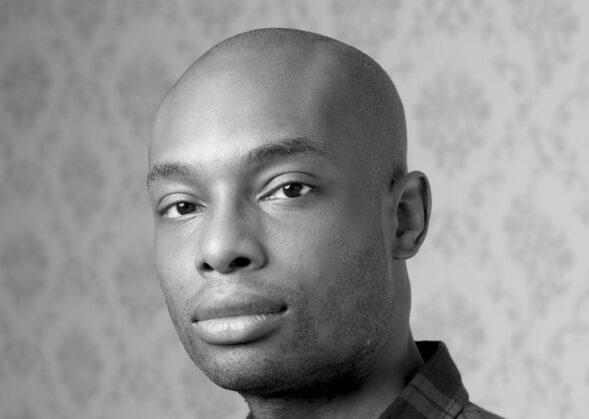Africa-Press – Mauritius. The filmmaker, who is now based in Lagos, kicked off an incredible run in February last year when his latest short film, Rehearsal, a gorgeously lit and emotionally complex interrogation of power structures within a Lagos Pentecostal church, premiered in the short-film competition at one of the biggest film festivals in the world, the Berlinale.
It enjoyed a year-long run at festivals around the world, including the Oscars-qualifying Internationale Kurzfilmtage Winterthur, the largest short-film festival in Switzerland.
With this win, Rehearsal is now able to compete in the short-film category at next year’s Oscars. Supernatural success In August, Juju Stories, the first feature-length film directed by Omonua and two of his colleagues – Abba Makama and C.
J. Obasi, all founding members of the Surreal16 Collective – premiered at the Locarno Film Festival, also in Switzerland. The supernatural-themed anthology won the best director award for the trio at the Africa International Film Festival in Lagos.
Juju Stories is an imaginative triptych based on popular Nigerian myths often relating to the supernatural. In the Omonua-directed Love Potion, for instance, which opens the project, a young woman, desperate for affection, follows the advice of a friend and concocts a fetish brew to retain the affections of a man she is interested in.
In the other two stories, a young person living on the street turns into a yam shortly after picking up some money seemingly left on the roadside, and a naïve student grapples with the gradual realisation that her roommate might be a witch.
State of disillusionment These tales are considered specific to the Nigerian experience, and with Juju Stories, Omonua and his colleagues find a thematic way to translate them smartly to a cinematic experience.
Speaking in his distinctly British accent, Omonua tells The Africa Report via Zoom: “We thought we could play around artistically with the concept and at the same time connect with something potentially commercial. Juju stories are kind of urban legends that people grew up hearing and it felt like the right project for us to collaborate on as a collective. ”
The trio created the Surreal16 Collective because of their disillusionment with the state of affairs in the local film industry, where romantic comedies and shiny star vehicles are trusted to guarantee success at the box office.
“It felt like it was important to make a different type of cinema that isn’t the status quo in Nigeria. That is why the collective came together in 2016 and drew up a manifesto. We just wanted to do something different,” says the 36-year-old Omonua.
In December, the collective took a stab at giving back through the maiden edition of the Surreal16 Film Festival. Its long-term objective, according to Omonua, is to grow into something like Sundance, with a remit of championing talented voices and independent films.
The festival also seeks to elevate audience development by programming more challenging films and exposing audiences to fresh trends in cinema. King of shots
One of Omonua’s fondest memories of his childhood is accompanying a cousin to a North London theatre to watch Steven Spielberg’s Jurassic Park. Later on, in high school, he came across an English teacher who would passionately discuss film with a bunch of students.
Sensing Omonua’s keen interest, the teacher lobbied the school to set up a film studies class that eventually introduced him to British propaganda war films and world cinema.
The spark was lit, and he started working on film sets as a teenager. He then went to university, where he began to study film and got a cheap camera to experiment with short films.
In 2010, a planned temporary visit to Nigeria for a funeral morphed into a permanent move. Omonua decided to figure out how to make films there. He developed his craft and worked through culture shocks, making about a dozen short films independently.
Today, in some quarters, Omonua is considered somewhat of a master of the form. Abba Makama, a frequent collaborator, tells The Africa Report: “What makes Mike standout is his amazing catalogue.
He has been consistent, dropping gem after gem each year and has built a great body of work within the short-film format. ” Omonua fancies himself a work in progress, even as he acknowledges tremendous improvement along the years.
“The short film is a place to learn craft first and foremost so that when someone eventually gives me a lot of money to make a feature, I know what I am doing […] I do enjoy it,” he says.
“I like the freedom in taking an idea and not feel like I need to tie everything up.
” Maybe I am that filmmaker that pops in their late 40s or 50s or 60s even. I don’t mind as long as I feel like I am making that progression.
With his shots, Omonua has explored very specific Nigerian concerns, such as fraud and illegal abortion. “I have never heard him [Omonua] speak a word of Pidgin English, and yet all his films are in pidgin,” Makama says.
Even though he has made a feature length, the little-seen The Man who Cuts Tattoos, which premiered at the London Film Festival in 2019, Omonua is one of the rare filmmakers who have received mainstream attention primarily for his work on short films.
Omonua credits his success to patience, consistency and commitment to professional improvement. He says he is now ready to take on feature-length projects head on.
He admits that he has been developing new ideas along this line and that his focus is long term. “Maybe I am that filmmaker that pops in their late 40s or 50s or 60s even.
I don’t mind as long as I feel like I am making that progression,” he says. He remains adamant about his aversion for working on commercial Nollywood films: “I have zero interest in doing anything in that realm.
” With the nationwide release of Juju Stories and the Oscars competition in the future, there are big things on the horizon.
For More News And Analysis About Mauritius Follow Africa-Press







